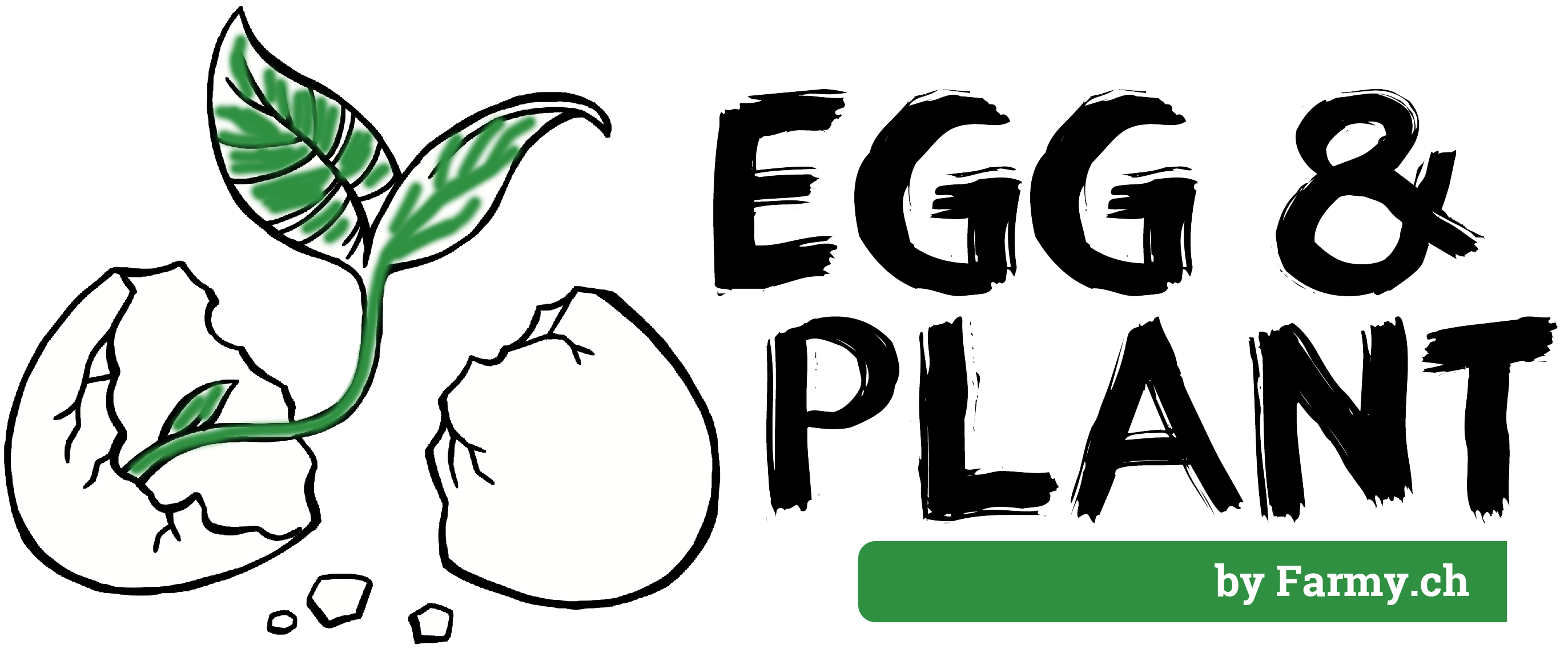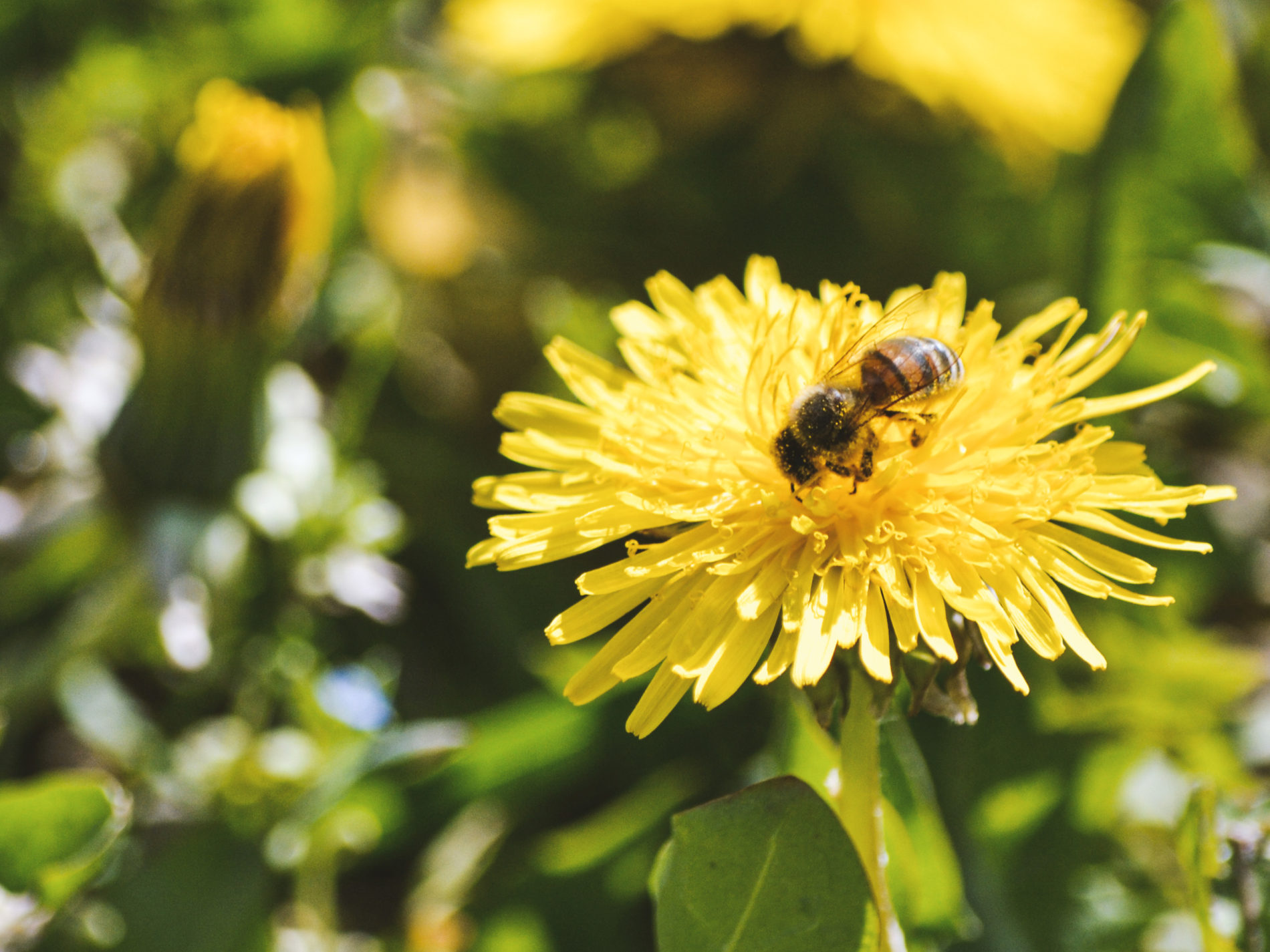April and May is the flowering season for rape fields and fruit trees, which means a big feast for the local bees. We’re going to tell you how you can contribute to the preservation of these important insects.
Swiss nature is beautiful and has numerous wildlife populations. These include the Swiss bees, which make a valuable contribution to the environment and nature from the beginning of spring until just before the cold winter.
The Different Species of Bees in Switzerland
There are over 500 native bee species in Switzerland. The best-known species is the honey bee Apis mellifera, which lives and produces honey in the widespread coloured bee houses.
The female honeybees lay their eggs in small, often self-drilled cavities. These consist of dead plant material or are dug directly into the ground. Afterwards the whole colony of honeybees hibernates in the beehive and is ready for foraging and pollination in spring.
Did you know that the well-known term wild bee includes all bee species except the honey bee? Furthermore, wild bees usually live alone and not in a community like the well-known honeybees. This is why the wild bee is also known as the solitary bee. The harmless bumblebees are also considered wild bees – although they form colonies. In comparison to the honey bee, however, the bumblebee communities are rather small and only the queen hibernates. Nevertheless, both honey bees and wild bees pollinate crops and wild plants during foraging and are therefore part of an intact environment.
Protecting Swiss Bees
Spring offers Swiss bees plenty of food, so it’s important to protect the native insects by following instructions for use in order to avoid poisoning. Because of this, the Federal Bee Health Service (BGD) is appealing again this year – pending the new regulations, to use insecticides that are dangerous to bees for emergency use only. For example, the insecticides chlorpyrifos, chlorpyrifos-methyl and spinetoram, as well as pesticides contaminated with fipronil, have been shown to cause bee mortality in this region.
Therefore, it is urgently necessary that regional farmers adhere to the application requirements (Spe8 sentence) and refrain from using harmful insecticides when possible. If this cannot be implemented, the products should only be used in the evening, after the bees have left.

Bee-Friendly Balconies and Gardens
It is not only the farmers who can protect the native bees and offer them a suitable habitat. If you have your own balcony, window box or garden, you can make the outdoor area bee-friendly with just a few materials.
Honey bees fly to almost all flowers, though there are certain plants they prefer and will always fly to.
So in a small space, climbing vines, such as vetches and clematis, are a good choice. Ivy or a house wall covered with wild vine is ideal for the diet of black and yellow striped insects. These don’t require much space and attract bees like magic. Bees also love open and unfilled flowers, and consider them to be delicious food.
When planting your balcony, it is well worth choosing different flowers and herbs with different flowering times so the bees can enjoy the abundant supply from spring to late autumn and you can enjoy the long-lasting splendour of the flowers.
Particularly Bee-Friendly Flowers
Regional varieties such as bellflowers, asters, phacelias, chamomile, sunflowers or daisies prefer bees in the warmer seasons.
Early flowering plants such as crocuses, snowdrops and violets are a good choice and are more than suitable for your flower boxes and planters.
Marigolds and roses are popular with bees and are edible balcony flowers, which can be used to complement your own menu.
Our tip: Try out pre-mixed bee-friendly flower seeds. This makes it easy because you don’t have to put them together yourself.
Suitable Herbs for Planting
Herbs are also ideal for providing bees with a wide range of food. Rosemary, thyme, lavender, sage, chives and peppermint are ideal for this. If you don’t trim the herbs, they will start to bloom and offer plenty of food because of the pollen and nectar.
Wild Bees in the Garden
If you have a garden or a larger balcony, you can acquire a wild bee sponsorship and support them in their own home as they develop. This is both exciting and instructive, as well as beneficial for nature and the environment.
Wild Bee Habitat
The team of wild bees and partners (German source) is pursuing an innovative strategy and would like to offer active educational work and maintain the population of Swiss pollinators with their activities and services.
So they are creating wild bee habitats, which you can easily place in your garden. The starting population hatches after only a few days and starts looking for food in your garden. The wild bees pollinate fruit trees in a radius of up to 300 meters and are important contributors to the biodiversity.
After the mating season, the females prepare their nests and enclose them in the wild bee habitat, where their offspring develop and hibernate until the next spring. There, their offspring develop and hibernate until the next spring. In order for the bees to hibernate in a species-appropriate way, you can return the habitat to wild bees and partners and get a new bee population back in spring. This makes beekeeping quite easy while making an important contribution to nature.

Become a Beekeeper in Switzerland
Are you fascinated but the concept of beekeeping and would possibly like to become a beekeeper yourself? To ensure that this hobby is carried out in a species-appropriate manner, BienenSchweiz (German source) has developed a training curriculum for beekeeper training on behalf of the Federal Office for Agriculture. The basic course for new beekeepers lasts 18 half days, which are spread over two years. In addition to the practical work in the bee house and in the magazines, the theoretical knowledge is also taught in this basic course. New beekeepers will receive practical knowledge over the course of the training years, so that bees and beekeepers can benefit from each other in the best possible way.
This basic course is not legally required in Switzerland, though it is highly advisable to attend it. When you keep bees, you take on duties and responsibility for animal husbandry and food production – bees fly long distances and can even spread diseases. Therefore beekeeping is not only a private hobby, but is in the public interest as well.
Consequently, beekeepers must comply with certain legal regulations and observe them when setting up a beekeeping business. This includes:
- The species-appropriate beekeeping and the compliance with general obligations as a beekeeper
- Building law templates
- Notification of animal movements
- Management of inventory control
- Use of veterinary medicinal products
- Compliance with food law

Conclusion
Bees are particularly valuable to us humans and must therefore be cared for and protected with great care. A conscious cooperation is essential and is the prerequisite for the preservation of these industrious little animals for a long time to come. Each one of us can contribute to this by taking small steps to preserve the bees.











What do you think?